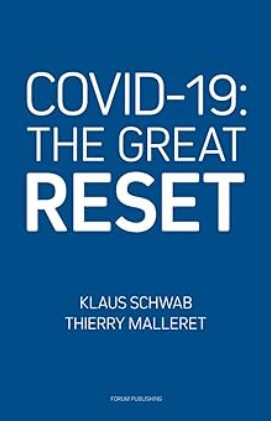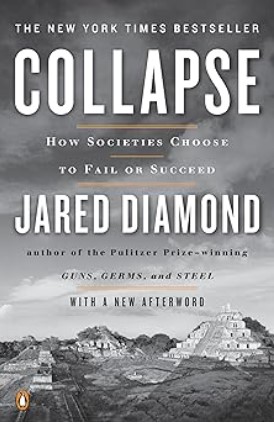If you are reading this blog post, you are like me. You read and seek to understand. You read to grasp changes taking place around you. You read to prepare for your future as well as to have a positive influence on others.
However, as humans, we must also deal with our own desire to not think about things we don’t like thinking about!
If there is one thing I wish I did not have to think about, it is the actions of global organizations that are more and more intrusive into my ability to make my own decisions.
In this post, I am only going to deal with one area and one organization: world global health risks and the World Health Organization.
Random or Pushed
One question I have asked myself often over the years is “random event or an event that was pushed on the public?” On March 11, 2020, we were all hit with the actions of the World Health Organization’s announcement that COVID 19 was now a pandemic.
WHO Declares COVID-19 a Pandemic, March 11, 2020, National Library of Medicine
Just 3 months later, I would watch a recording of a video call by members of the World Economic Forum called The Great Reset. Within a month, Klaus Schwab’s book, The Great Reset was a book anyone could purchase.

The video call confirmed with me that COVID-19 was not the big issue for these non-elected global leaders. In roughly an hour and a half, less than 10 minutes was given about COVIID; the bulk of the time spent on climate change. Why were these individuals not talking about the first global shutdown of the world economy? Why was so little time given to the pandemic?
As I continued to read, I came across Event 201. Immediately I learned that this event took place in October of 2019, months before the world was told we had entered a pandemic by the WHO and the entire world was thrown into an economic shutdown.
The following is a description of Event 201 that anyone can find on a webpage run by the John Hopkins Center for Health Security:
The Johns Hopkins Center for Health Security in partnership with the World Economic Forum and the Bill and Melinda Gates Foundation hosted Event 201, a high-level pandemic exercise on October 18, 2019, in New York, NY. The exercise illustrated areas where public/private partnerships will be necessary during the response to a severe pandemic in order to diminish large-scale economic and societal consequences.
As you will notice, this major name in the field of medicine was working in partnership with two of the most powerful organizations in the world, seeking to simulate what would need to be done SHOULD a “severe pandemic” having “large-scale economic and societal consequences” take place in the future.
Now we jump forward to 2022. The following was taken from a webpage called Catastrophic Contagion, a page under the Center for Health Security, the same organization that ran Event 201 in October 2019.
The following can be found on the opening page of Catastrophic Contagion:
The Johns Hopkins Center for Health Security, in partnership with WHO and the Bill & Melinda Gates Foundation, conducted Catastrophic Contagion, a pandemic tabletop exercise at the Grand Challenges Annual Meeting in Brussels, Belgium, on October 23, 2022.
What do you notice? 2 of the 3 organizations that were working on a “fictional scenario” in 2022 were also the same ones that were working on a “fictional scenario” in the fall of 2019 just months before COVID-19 and pandemic became household terms around the entire world.
Once again, let’s review how Event 201 (2019) is described on the Center for Health Security and compare it with how they describe Catastrophic Contagion (2022).
This training tabletop exercise is based on a fictional scenario. The inputs experts used for modeling the potential impacts were fictional. It is a teaching and training resource for public health and government officials.
This training tabletop exercise is based on a fictional scenario. The inputs experts used for modeling the potential impacts were fictional. It is a teaching and training resource for public health and government officials.
If the John Hopkins Center for Health Security and the Bill and Melinda Gates Foundation were partnering with a global organization (WEF) in 2019 to simulate a fictional scenario regarding how public and private entities will be necessary during the response to a severe pandemic in order to diminish large-scale economic and societal consequences… and a few months later an actual scenario, the first global shutdown in history, did take place causing enormous economic and societal consequences… then should we expect another pandemic to “randomly” appear soon since the John Hopkins Center for Health Security and the Bill and Melinda Gates Foundation partnered with another global organization (WHO) in 2022?
Having read and learned a great deal from a host of books, articles, and documentaries since 2020, it is obvious that a lot of people have asked the same question.
If you are reading this post, chances are very high that you have already done a great deal of reading yourself. You have also made decisions about your own health since March 2020 that you may not have made prior to March 2020.
Let me close today with an illustration of WHY this may be hard to discuss with a wide audience even in 2024. I read this in a book that was recommended to me in the summer of 2006. The following is from Professor Jared Diamond’s book, Collapse: How Societies Choose To Fail or Succeed:
“The final speculative reason that I shall mention for irrational failure to try to solve a perceived problem is psychological denial. This is a technical term with a precisely defined meaning in individual psychology…If something that you perceive arouses in you a painful emotion, you may subconsciously suppress or deny your perception in order to avoid the unbearable pain, even though the practical results of ignoring your perception may prove ultimately disastrous.” [Collapse, Diamond, 2005, pg 435]

Diamond then gives an example of how this played out when pollsters interviewed people living downstream from a dam.
“Consider a narrow river valley below a high dam, such that if the dam burst, the resulting flood of water would drown people for a considerable distance downstream. When attitude pollsters ask people downstream of the dam how concerned they are about the dam’s bursting, it’s not surprising that fear of a dam burst is lowest far downstream, and increases among residents increasingly close to the dam. Suprisingly, though, after you get just a few miles below the dam, where fear of the dam’s breaking is found to be the highest, the concern then falls off to zero as you approach closer to the dam! That is, the people living immediately under the dam, the ones most certain to be drowned in a dam burst, profess unconcern. That is because of psychological denial: the only way of preserving one’s sanity while looking up every day at the dam is to deny the possibility that it could burst.” [Ibid, pg 436]
Diamond concludes that even though this is an example of individual denial, this narrative seems to correspond to group psychology as well.
National Sovereignty or Global Tyranny
When I consider how the world was given instructions on daily life by a handful of individuals once the WHO announced that COVID 19 was a pandemic, and how much this event has “reset” the way we look at the world and global groups, I continue to ask everyone to answer the question, “WHOse life is it anyway”? For anyone taking the events of 2020 past their own health to that of how nations came under the power of a global governing agency, it is truly one of the most pressing questions of our time.
As we continue through 2024, I strongly encourage everyone to find sources that focus on developments taking place at the WHO. Clearly, the powers of the WHO are something everyone around the world should be pushing back on, since as shown in 2020, our daily lives can change overnight from such global non elected individuals.
Recommended Sources:
James Roguski’s Substack – Ongoing Commentary on WHO developments
(Dr) Meryl Nass Substack – Disentangling COVID, WHO and global governance disinformation
Epoch Times – Excellent interviews, documentaries, and articles
Peter McCullough MD, MHD, – Internist, cardiologist, and epidemiologist: Co-author (with John Leake) of “The Courage to Face COVID-19: Preventing Hospitalization & Death While Battling the Bio-Pharmaceutical Complex.”
The Wellness Company – Source for preparing for medical emergencies
Regarding the May 27th WHO attempt at passing a “pandemic treaty”
SOS: Stop the World Health Organization’s Tyrannical May 27 Power Grab, Gatestone Institute: International Policy Council, May 17, 2024
Journalist Alan Newman Interviews Dr. Peter McCullough: Disease X Is Being Cooked Up Right Before the WHO Treaty Vote, Rumble, May 7, 2024
Nigel Farage: We Must Leave the WHO Over the Pandemic Treaty, The Telegraph, May 13 , 2024
Securing America By Rejecting the World Health Organization, Dr. Peter McCullough with Frank Gaffney, Courageous Discourse, May 24, 2024
24 GOP Governors Tell Biden Not To Sign the WHO Pandemic Agreement, May 25 ’27, Zero Hedge
Neither the Pandemic Agreement nor the IHR amendment process was able to produce a final document yesterday, Dr Meryl Ness Substack, May 25, 2024
[Thanks C for sharing.]
Disclaimer: This information is free. I am merely an American citizen concerned about the continued move away from freedom and toward more controls being pushed at the global level. Like financial information, this information is solely for your own investigation and should not be considered medical advice.
As always, comments are always welcomed. If you find this information of value, please share it with others.
